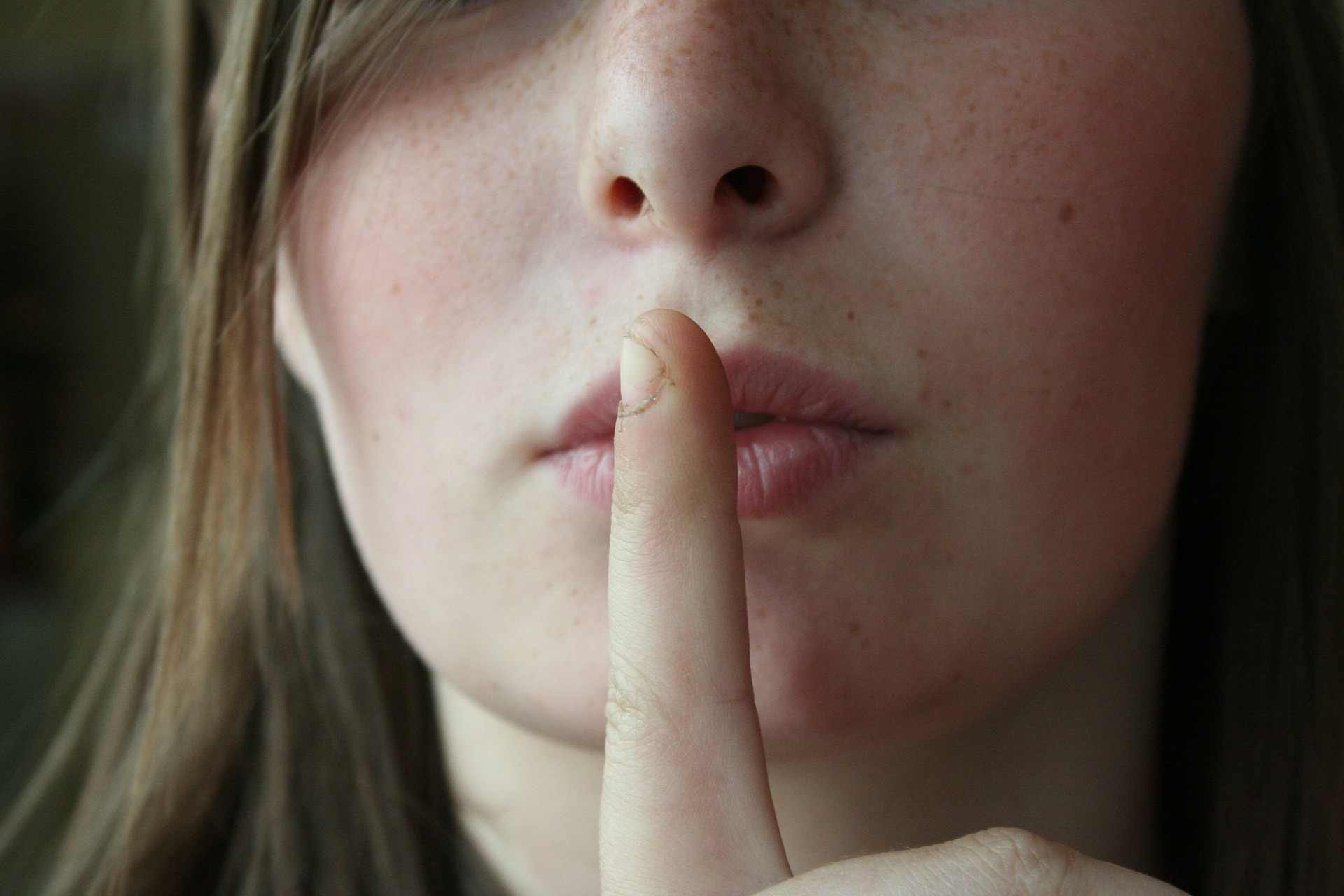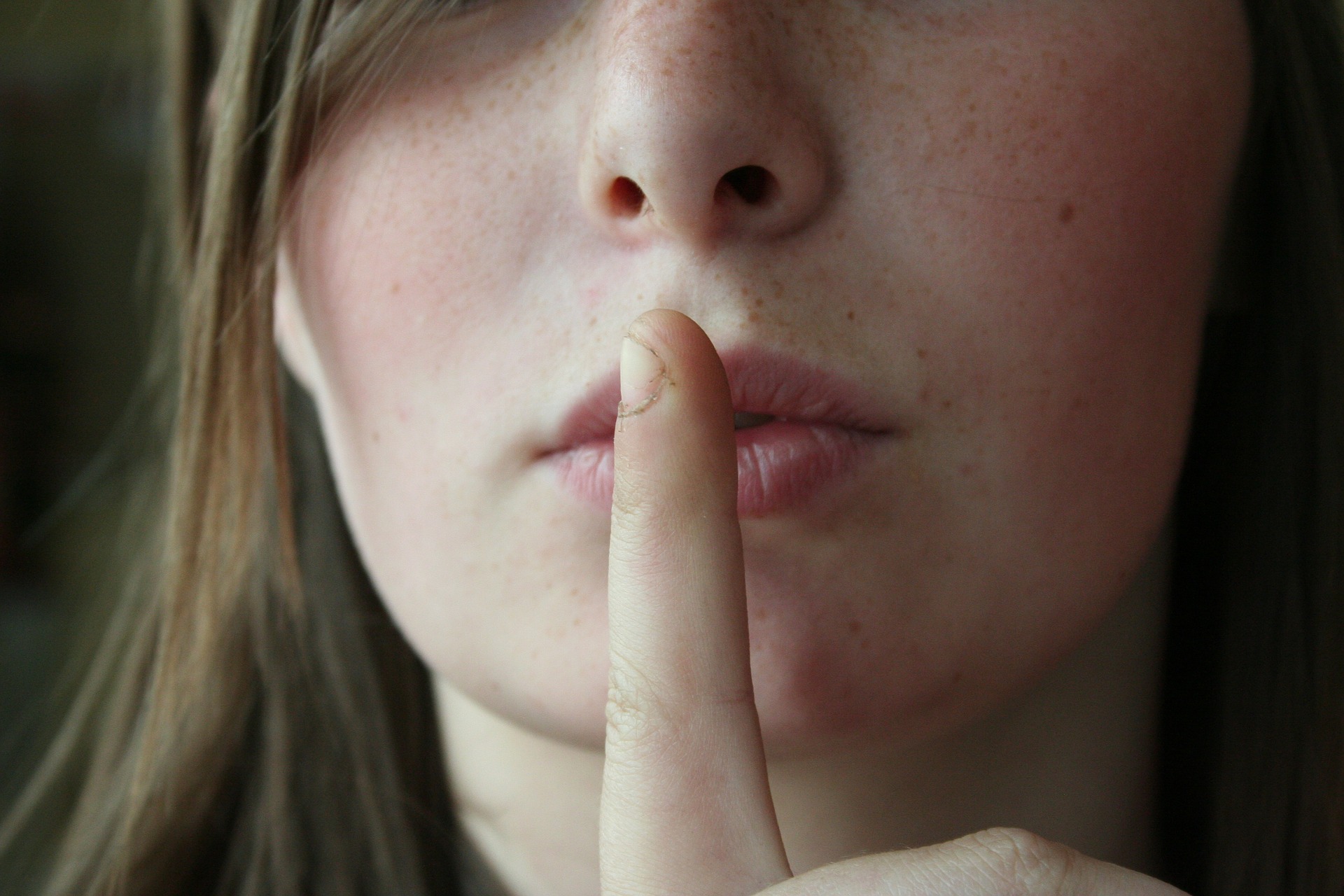Every once in a while someone asks me if I’m afraid that Bayer or Johnson & Johnson will retaliate against me for speaking out about the dangers of fluoroquinolones, and specifically the fluoroquinolones they manufacture, market, and distribute–Cipro and Avelox by Bayer, and Levaquin by Johnson & Johnson.
The answer is no.
No, they haven’t done anything bad to me, and no, I don’t think or fear that they will.
Not that corporate pharmaceutical companies like Bayer and J&J haven’t been evil before–they have, and I’m sure they are currently being evil, and will continue to be evil into the future–I just don’t think that they’ll be evil or vindictive toward me.
As a patient, patient advocate, and blogger, I don’t think I’m on their radar. Perhaps I’m naive for thinking that–I just have a hard time believing that big bad Bayer actually cares what little me (Lisa) has to say. In some ways, I wish they did. If they cared, it would be because they felt threatened, and to be capable of threatening big-pharma would be pretty amazing. I don’t think I’m on that level though–for better or for worse.
When I first started this site I asked an attorney how I should protect myself. She said, “always tell the truth,” and “they can’t argue with your story – it’s yours.” Just like my story and truth are valid, your story and truth are valid too. This site has my story, and the stories of others like me who have been hurt by fluoroquinolones. Our stories are true. They are our testimonials. They are what happened to us. No one can take away our experiences, our truths, or our stories. Our stories are valuable beyond measure, and they are making a difference in how people think about fluoroquinolones specifically, antibiotics generally, and even about how pharmaceutical reactions are connected to various illnesses and symptoms.
I want everyone to be empowered to share their story. Stories of pain and injury caused by fluoroquinolones are important and they matter. So, it bothers me when people refrain from telling their stories/truths out of fear that Bayer or J&J will retaliate against them. I can’t know what will happen to anyone in the future, but I can tell you that over the past 4+ years of running this site, having my story of fluoroquinolone toxicity available, and writing about the dangers of fluoroquinolones, neither Bayer nor J&J have done anything bad to me. (And while this means that I’m not as threatening to them as I want to be, it also means that I’m not having my life ruined, and, well, that’s a good thing IMO.)
What bothers me even more than fear-based self-censorship of patients is fear-based self-censorship of scientists, researchers, and doctors. A floxed friend approached a research scientist she knew personally and professionally to ask if he would do some research into fluoroquinolone toxicity, and he declined while flippantly saying something about not wanting to jeopardize his future funding prospects. I have no idea whether or not researching fluoroquinolone toxicity would affect this research scientist’s future funding prospects, but the fact that he fears pharma reprisal, and is willing to overlook horrifying fluoroquinolone reactions in his friend and colleague just to avoid the possibility of big-pharma’s reprisal, is bothersome. Unfortunately, reluctance to take on and question pharma seems common among researchers. As the saying goes, “don’t bite the hand that feeds you,” and so much research (even academic research) is funded, at least in part, by pharmacuetical companies.
Pharma money controls the conversation. They don’t have to make overt threats. They don’t have to ruin the lives of scientists (though they do, as seen in the story of the battle between researcher Tyrone Hayes and big-ag chemical giant Syngenta or the destruction of Andrew Wakefield’s career over his questioning of the effects of the MMR vaccine on the gut biome). They just have to control the purse-strings, and many people will fall in-line.
When research scientists limit the questions that they are willing to ask in order to avoid rocking the pharma boat, they are doing us all a dis-service. There is nothing thoughtful, curious, righteous, or even scientific about failing to research adverse drug reactions out of fear of reprisal from pharma, and drugs will continue to be more and more dangerous if all incentives are for research scientists to look away. I hope that my friend’s friend is unusually timid, and that most research scientists are willing to challenge big-pharma. Though I hope that, I don’t believe it. I believe that most research scientists are falling in-line with what their funders want, either consciously or unconsciously, and that because of biases toward their funders, we, as patients and consumers, are less safe.
I have hope that individuals will get over their fear of big-pharma, and speak out about the harm that they have experienced as a result of fluoroquinolone toxicity or other adverse drug reactions. (Shout your truth – tell your story – it’s empowering – trust me, it really is!) I even have some hope that individual scientists will face their fears and confront their big-pharma funders. But I have less hope that the system of corporate, academic, and even government “science” will go against the big-pharma, big-ag, and big-chemical giants that fund and feed them. It’s too scary. Even if the fear is largely self-inflicted, it’s still too scary for most people to question and challenge paradigms.
When I got floxed, I couldn’t help but question my existing paradigms. A pharmaceutical, an ANTIBIOTIC no less, hurt me. It made me ill for a long time, and there was nothing that doctors could do to help me. I didn’t gain any acknowledgement, support, or solutions from traditional doctors (some people do though, everyone’s experience is different). It made me realize that when the medical system hurts people, they don’t know how to put them back together, and all my assumptions about the ability of the medical system to solve human health mysteries went out the window. I realized that the doctors in the Western medical system have no idea how to treat complex illnesses like fluoroquinolone toxicity (or other multi-symptom, chronic illnesses), and that the patients dealing with mysterious illnesses are largely on their own. When I realized that pharmaceuticals are hurting people and leading to chronic illness, I started to question whether or not the good done by pharmaceuticals is worth the harm. I started to see that many of the illnesses of modernity can be linked to pharmaceuticals (and antibiotics specifically, and fluoronated drugs specifically), as well as the endocrine-disrupting chemicals of big-ag and other corporate chemical companies. My paradigm shifted when I got hurt by ciprofloxacin, so it wasn’t a risk to my world-view to actively criticize Bayer, J&J, or the other pharmaceutical companies after-the-fact. There are many obvious disadvantages of getting hurt by ciprofloxacin and other pharmaceuticals, but a silver lining was that my world-view shifted, and my fear dissipated.
I’m not afraid of big-pharma. Maybe it’s because I’m naive about their power, influence, and ability to ruin my life. Maybe it’s because I’m not a threat to them, and neither of us have any reason to fear the other. But I like to think that I don’t fear them because my world-view doesn’t give them power any more. Of course they have actual power–they have money, influence, and the ability to poison and hurt me, every other human, and the earth–but they no longer have the power of me believing that they are the answer. I don’t believe that they are the answer. I believe that they are the problem. And I believe that challenging them is the right thing to do. I also believe that answers to the problems caused by pharmaceuticals are in the stories of patients who are willing to speak out about what happened to them, and in the willingness of researchers and scientists who are willing to buck-the-system and question the pharma paradigm. Some bravery is required on behalf of both patients and scientists who question and challenge big-pharma. The bravery is worth it though, and others may find, like I did, that there is nothing to fear but fear itself.













… [Trackback]
[…] Find More to that Topic: floxiehope.com/is-big-pharma-silencing-you/ […]
… [Trackback]
[…] Read More Information here on that Topic: floxiehope.com/is-big-pharma-silencing-you/ […]
… [Trackback]
[…] Read More on that Topic: floxiehope.com/is-big-pharma-silencing-you/ […]
… [Trackback]
[…] Read More on that Topic: floxiehope.com/is-big-pharma-silencing-you/ […]
… [Trackback]
[…] Find More Info here to that Topic: floxiehope.com/is-big-pharma-silencing-you/ […]
… [Trackback]
[…] Read More on that Topic: floxiehope.com/is-big-pharma-silencing-you/ […]
… [Trackback]
[…] Info on that Topic: floxiehope.com/is-big-pharma-silencing-you/ […]
… [Trackback]
[…] Read More on that Topic: floxiehope.com/is-big-pharma-silencing-you/ […]
… [Trackback]
[…] There you can find 4120 additional Information to that Topic: floxiehope.com/is-big-pharma-silencing-you/ […]
… [Trackback]
[…] Information on that Topic: floxiehope.com/is-big-pharma-silencing-you/ […]
… [Trackback]
[…] Information on that Topic: floxiehope.com/is-big-pharma-silencing-you/ […]